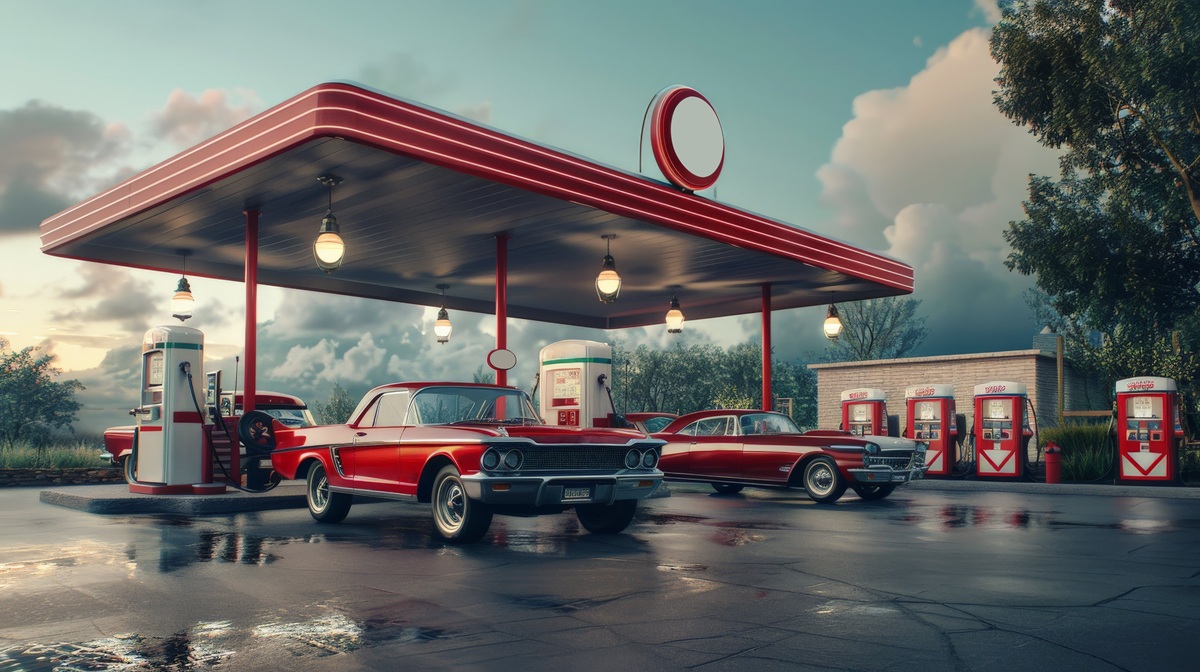October 14, 2025
The Future of Customer Experience Beyond the Petrol Station Forecourt

Petrol/diesel/fuel/electric, whatever you put in your vehicle, there’s something vaguely depressing about the modern forecourt. Fortunately, it is due for an upgrade as smart solutions hit the pumps.
That could help in the UK, where the one member of staff at a smaller station is usually too busy stocking the shelves or cleaning the coffee machine to activate your pump. That’s assuming it isn’t coned off for a tanker refill as your petrol gauge hovers perilously close to zero.
Even at bright and clean supermarket forecourts, the existence of the shop, yards from a massive store with near infinite choice seems a weird approach. However, we’re sure retailing industry giants know best (and we would love to see the data).
Finding Gold on the Forecourt
Forecourt operators will keenly digest the latest 10-page Dover Fueling Solutions whitepaper, “How Smart is Your Fuel Site?” Focused on the EMEA region, it highlights the power of smart fuel retail solutions. There’s little surprising in the report; who knew a great CX drives loyalty, which drives sales?
But where’s the differentiator between okay and great when customers have nostrils full of petrol fumes or dirty hands, so don’t really fancy that expensive sandwich? Pro-tip: hand washers/dryers by the kiosk entrance!
Key findings from the report include:
- 86% of consumers are willing to pay more for a great customer experience
- Those customers spending up to 140% more than those who experience negative interactions
- In some networks, 65% of a business’ revenue often comes from repeat purchases by existing customers
- Early leak detection systems helped prevent up to 9,800 litres of fuel loss over six months
- Self-checkout kiosks can boost basket size by 26%.
These improvements could be driven by smarter pumps, self-service kiosks in the store. All delivering data-driven insights to the cloud-based remote CX management system for seamless operations and for better customer experiences.
The Changing Face of Vehicle Fuels
Where the technology could play a key role is in new fuel trends. Helping identify growth in EVs, Compressed Natural Gas (CNG), Liquefied Natural Gas (LNG), Liquefied Petroleum Gas (LPG), Hydrotreated Vegetable Oil (HVO), EV, or Hydrogen, helping support broader alternative energy strategies.
Perhaps not hydrogen, as GM just cancelled its Next-Gen Hydrogen Fuel Cell Development Program. Putting a major dent in the hopes of H as a vehicle-fuel source.
The report notes, “A connected forecourt will support better management of such offerings and enable retailers to have a full overview of what’s happening across the entire forecourt. Regardless of energy type or preferred payment method, so they can optimise the customer journey from start to finish.”
Peter Van Nauw, Senior Director and General Manager, DFS Systems and Payment, EMEA, said: “Smart fuel sites, or mobility hubs, represent a significant evolution for fuel retailers. Moving beyond traditional fuel sales to become central hubs for various transportation and convenience needs. This shift requires embracing technology, focusing on the customer experience, and adapting to the changing mobility landscape.”



